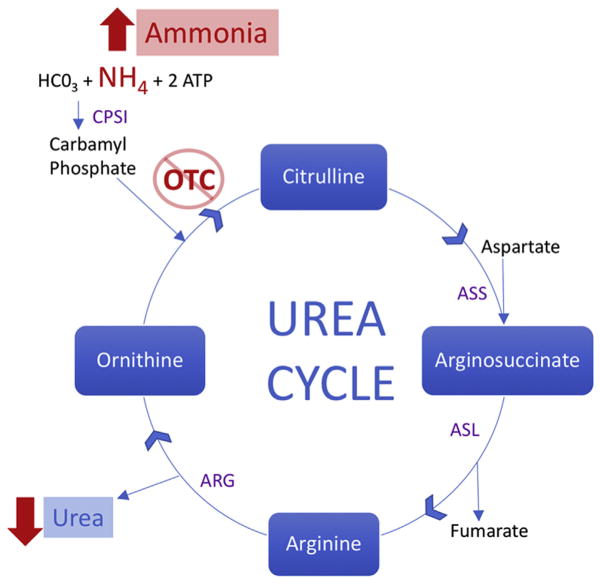Fig. 1.
OTC deficiency: a urea cycle disorder. The urea cycle is the metabolic pathway responsible for detoxification of excess and waste nitrogen. With each turn of the cycle, 2 nitrogen atoms are converted to urea, which can be safely excreted by the kidneys. Deficiency of the OTC enzyme, which catalyzes the production of citrulline from ornithine and carbamyl phosphate, prevents the formation of urea and leads to an accumulation of ammonium (NH4). Systemic alkalosis converts NH4 to the more toxic form, ammonia (NH3). High levels of NH3 are toxic to the brain and lead to the symptoms seen in OTC deficiency, including confusion, brain edema, and coma. ARG, arginase; ASL, argininosuccinate lyase; ASS, argininosuccinate synthase; CPSI, carbamoyl-phosphate synthase 1; HCO3, bicarbonate.

